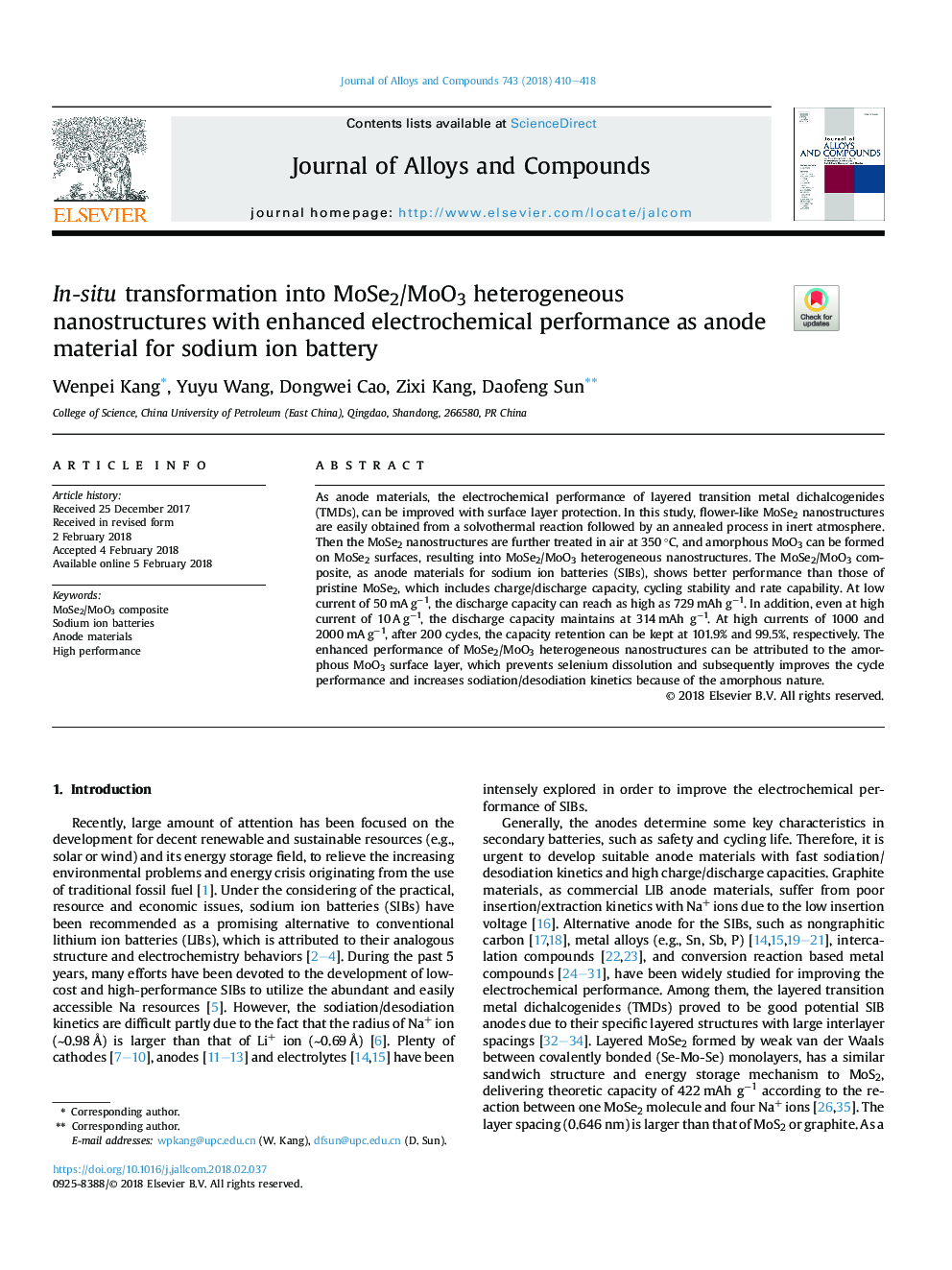| کد مقاله | کد نشریه | سال انتشار | مقاله انگلیسی | نسخه تمام متن |
|---|---|---|---|---|
| 7993240 | 1516151 | 2018 | 9 صفحه PDF | دانلود رایگان |
عنوان انگلیسی مقاله ISI
In-situ transformation into MoSe2/MoO3 heterogeneous nanostructures with enhanced electrochemical performance as anode material for sodium ion battery
دانلود مقاله + سفارش ترجمه
دانلود مقاله ISI انگلیسی
رایگان برای ایرانیان
کلمات کلیدی
موضوعات مرتبط
مهندسی و علوم پایه
مهندسی مواد
فلزات و آلیاژها
پیش نمایش صفحه اول مقاله

چکیده انگلیسی
As anode materials, the electrochemical performance of layered transition metal dichalcogenides (TMDs), can be improved with surface layer protection. In this study, flower-like MoSe2 nanostructures are easily obtained from a solvothermal reaction followed by an annealed process in inert atmosphere. Then the MoSe2 nanostructures are further treated in air at 350â¯Â°C, and amorphous MoO3 can be formed on MoSe2 surfaces, resulting into MoSe2/MoO3 heterogeneous nanostructures. The MoSe2/MoO3 composite, as anode materials for sodium ion batteries (SIBs), shows better performance than those of pristine MoSe2, which includes charge/discharge capacity, cycling stability and rate capability. At low current of 50â¯mAâ¯gâ1, the discharge capacity can reach as high as 729â¯mAh gâ1. In addition, even at high current of 10â¯Aâ¯gâ1, the discharge capacity maintains at 314â¯mAh gâ1. At high currents of 1000 and 2000â¯mAâ¯gâ1, after 200 cycles, the capacity retention can be kept at 101.9% and 99.5%, respectively. The enhanced performance of MoSe2/MoO3 heterogeneous nanostructures can be attributed to the amorphous MoO3 surface layer, which prevents selenium dissolution and subsequently improves the cycle performance and increases sodiation/desodiation kinetics because of the amorphous nature.
ناشر
Database: Elsevier - ScienceDirect (ساینس دایرکت)
Journal: Journal of Alloys and Compounds - Volume 743, 30 April 2018, Pages 410-418
Journal: Journal of Alloys and Compounds - Volume 743, 30 April 2018, Pages 410-418
نویسندگان
Wenpei Kang, Yuyu Wang, Dongwei Cao, Zixi Kang, Daofeng Sun,